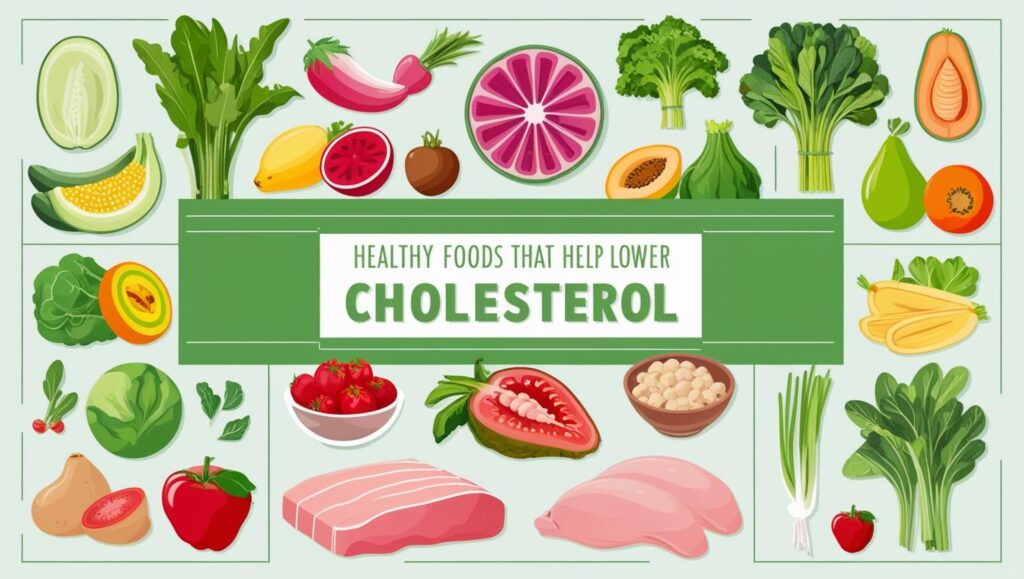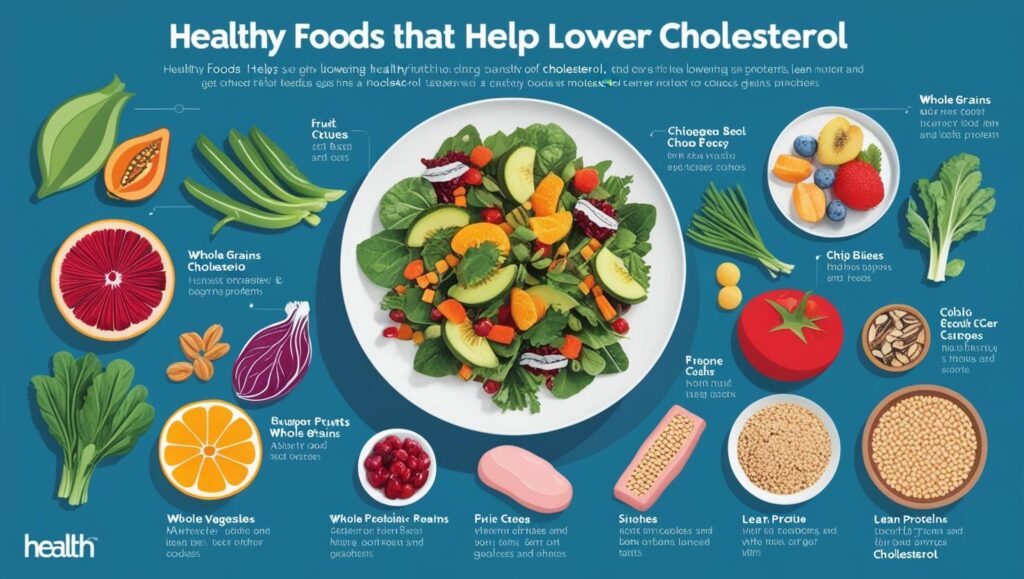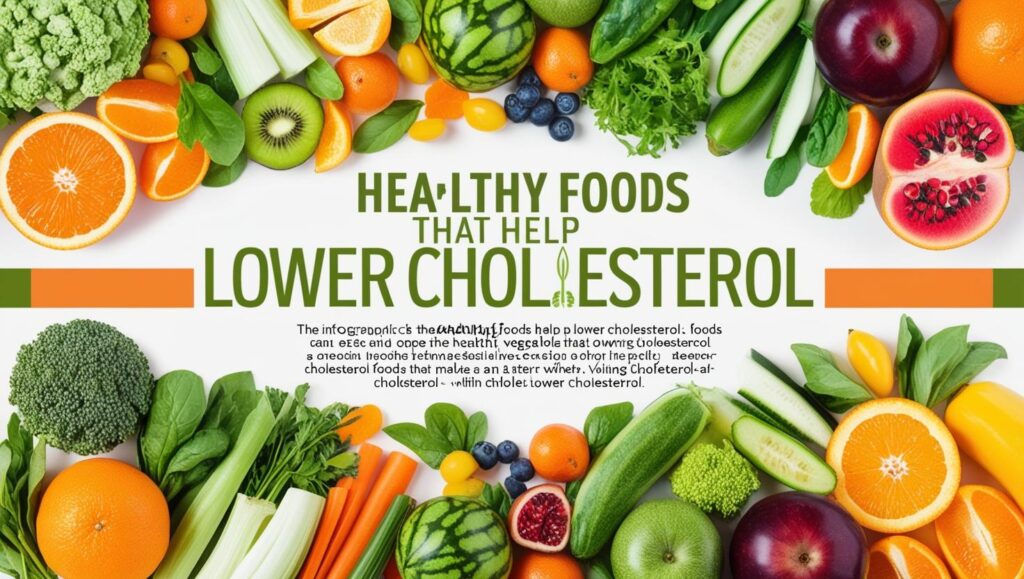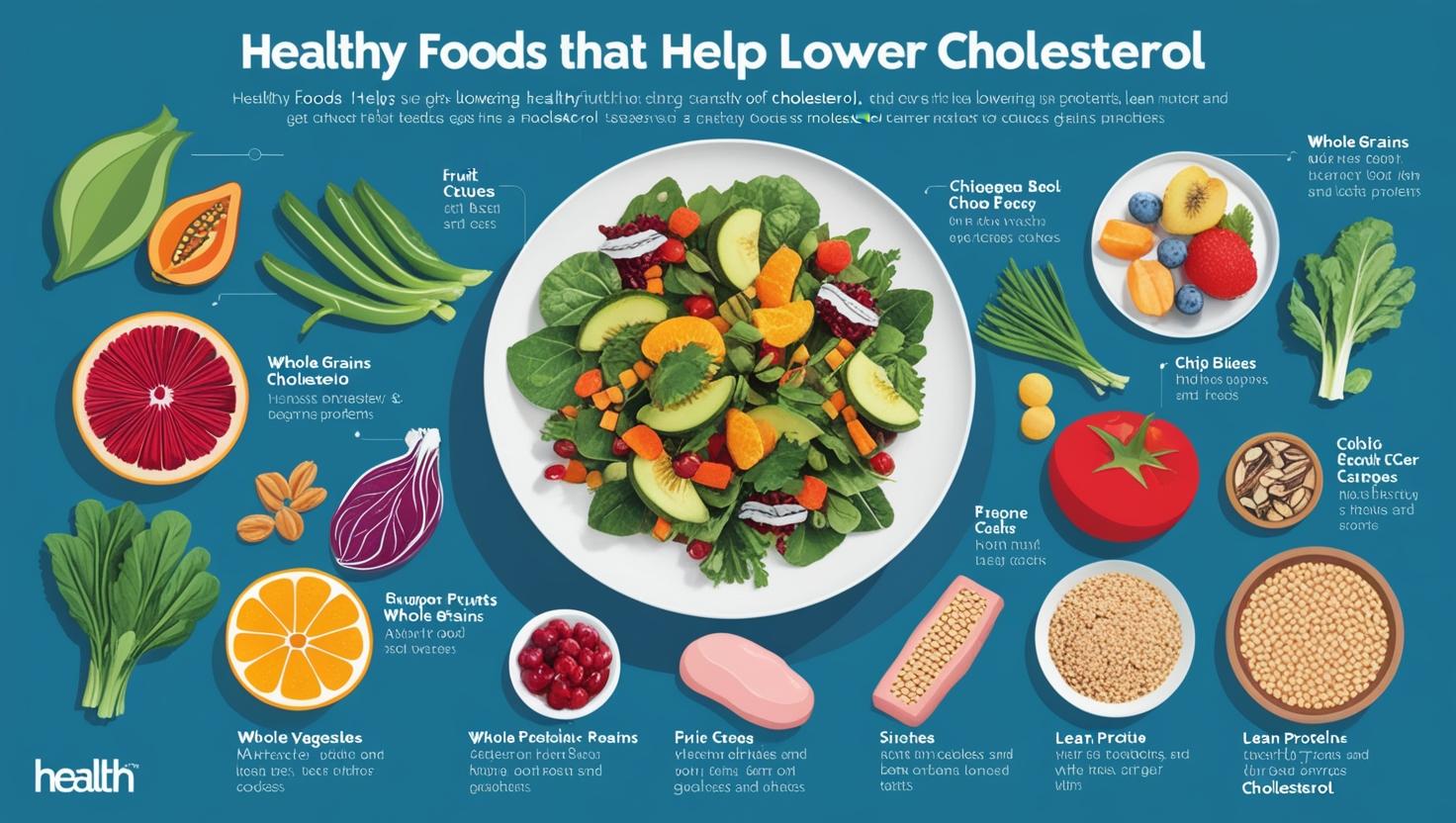How to Lower Cholesterol Naturally: Doctor-Recommended Tips
A heart-healthy diet emphasizes fiber-rich foods like oats, beans, and vegetables to lower bad cholesterol (LDL) while boosting good cholesterol (HDL). It includes healthy fats from sources like olive oil, avocados, and nuts, along with lean proteins such as fish and poultry. This diet limits saturated and trans fats, reduces sodium and added sugars, and supports heart function when combined with regular physical activity.
Managing cholesterol naturally is important to reduce the risk of cardiovascular diseases without relying solely on medication. By making lifestyle changes, you can lower LDL cholesterol levels and increase HDL cholesterol, improving heart health. Here are some doctor-recommended tips to lower cholesterol naturally.
1. How to Lower Cholesterol Naturally Without Medication

Many people seek ways to lower cholesterol without using medications like statins. Lifestyle changes, such as improving your diet, increasing physical activity, and managing stress, can significantly reduce LDL cholesterol and boost HDL cholesterol. Incorporating more fiber, healthy fats, and plant-based proteins into your meals can be an effective first step.
2. Best Diet to Reduce Cholesterol Levels Fast
A heart-healthy diet focuses on whole, unprocessed foods that lower cholesterol. Some key dietary changes include:
- Increasing fiber intake (oats, beans, and fruits)
- Choosing healthy fats (olive oil, avocados, nuts)
- Eating omega-3-rich foods (salmon, walnuts, flaxseeds)
- Reducing processed and sugary foods
- Replacing red meat with plant-based proteins
3. Natural Remedies for High Cholesterol and Triglycerides
Several natural remedies can help lower cholesterol and triglycerides, including:
- Drinking green tea, which contains antioxidants that improve heart health
- Consuming garlic, which has cholesterol-lowering properties
- Taking apple cider vinegar in moderation for better lipid balance
- Eating nuts and seeds to reduce LDL levels
4. How to Improve Heart Health by Lowering Cholesterol
Lowering cholesterol naturally can improve heart health by reducing the risk of plaque buildup in arteries. Regular exercise, stress management, and quitting smoking are key lifestyle changes that enhance cardiovascular well-being.
5. Foods That Help Lower Bad Cholesterol (LDL) Quickly

Adding these foods to your diet can help lower LDL cholesterol:
- Oatmeal and whole grains
- Leafy green vegetables like spinach and kale
- Nuts (walnuts, almonds, and pecans)
- Fatty fish such as salmon and sardines
- Legumes, including lentils and chickpeas
6. How to Increase Good Cholesterol (HDL) Naturally
Boosting HDL cholesterol can help remove excess LDL cholesterol from the bloodstream. Ways to increase HDL levels include:
- Exercising regularly
- Consuming healthy fats (olive oil, nuts, seeds)
- Reducing trans fats and refined carbs
- Maintaining a healthy weight
7. Exercises to Lower Cholesterol and Improve Heart Health
Physical activity is crucial for maintaining healthy cholesterol levels. The best exercises include:
- Brisk walking or jogging
- Cycling
- Swimming
- Strength training The American Heart Association recommends at least 150 minutes of moderate-intensity exercise per week.
8. How to Reduce Cholesterol Naturally at Home

Small lifestyle changes at home can make a big impact on cholesterol levels. Tips include:
- Cooking with heart-healthy oils
- Drinking herbal teas that aid digestion
- Reducing stress through meditation and deep breathing
- Avoiding processed foods and sugary snacks
9. Best Supplements for Lowering Cholesterol Safely
Natural supplements can complement a healthy diet in lowering cholesterol. Some of the most effective include:
- Plant sterols and stanols
- Fiber supplements like psyllium husk
- Fish oil rich in omega-3s
- Red yeast rice (consult your doctor before use)
10. Lifestyle Changes to Lower Cholesterol and Blood Pressure
High cholesterol and high blood pressure often go hand in hand. Adopting the following habits can improve both:
- Reducing sodium intake
- Staying physically active
- Drinking plenty of water
- Managing stress effectively
Conclusion
Lowering cholesterol naturally is possible with a combination of healthy eating, regular exercise, stress management, and lifestyle adjustments. By incorporating these doctor-recommended tips, you can improve heart health and reduce the risk of cardiovascular diseases. Consistency is key—making small, sustainable changes will lead to long-term benefits. If you have concerns about cholesterol levels, consult a healthcare professional for personalized advice. Take control of your health today and start making heart-friendly choices!
What are the symptoms of high cholesterol?
High cholesterol itself does not cause symptoms. It is often detected through blood tests. However, prolonged high cholesterol can lead to complications like heart disease, which may cause chest pain, shortness of breath, or stroke.
How long does it take to lower cholesterol naturally?
The time it takes to lower cholesterol naturally varies from person to person. With consistent dietary changes, exercise, and healthy habits, cholesterol levels can start improving within a few weeks to a few months. Significant reductions may take around 3 to 6 months.
Can drinking water lower cholesterol?
While water itself does not directly lower cholesterol, staying hydrated supports overall metabolic functions and can aid digestion and weight management, which contribute to healthier cholesterol levels.
Are eggs bad for cholesterol?
Eggs contain dietary cholesterol, but they are also high in nutrients and healthy fats. Research suggests that moderate egg consumption (up to 1 per day) does not significantly impact cholesterol levels for most people. However, those with high cholesterol should monitor their intake and focus on eating eggs in a balanced diet.
Is coffee bad for cholesterol?
Unfiltered coffee (such as French press or espresso) contains cafestol, a compound that may raise LDL cholesterol. However, filtered coffee (such as drip coffee) has minimal effects on cholesterol levels.
Does stress increase cholesterol?
Yes, chronic stress can contribute to high cholesterol by triggering the release of stress hormones, which may lead to unhealthy eating habits, weight gain, and increased LDL cholesterol. Managing stress through relaxation techniques, exercise, and mindfulness can help.
Can I lower cholesterol naturally without exercise?
Yes, diet plays a crucial role in lowering cholesterol. However, exercise helps raise HDL (good cholesterol) and further supports heart health. A combination of both is ideal for the best results.
Does alcohol affect cholesterol levels?
Moderate alcohol consumption, particularly red wine, has been linked to increased HDL (good cholesterol). However, excessive alcohol intake can raise triglycerides and LDL cholesterol, leading to heart problems. It’s best to drink in moderation or avoid alcohol altogether.
What is the best fruit for lowering cholesterol?
Fruits high in fiber, such as apples, berries, oranges, and pears, can help lower LDL cholesterol by reducing absorption in the bloodstream.
When should I see a doctor about my cholesterol?
If you have a family history of high cholesterol, heart disease, or other risk factors, it’s best to have regular cholesterol screenings. If your levels are consistently high despite lifestyle changes, consult a doctor for further evaluation and potential treatment options.

1 thought on “How to Lower Cholesterol Naturally: Doctor-Recommended Tips for 2025”